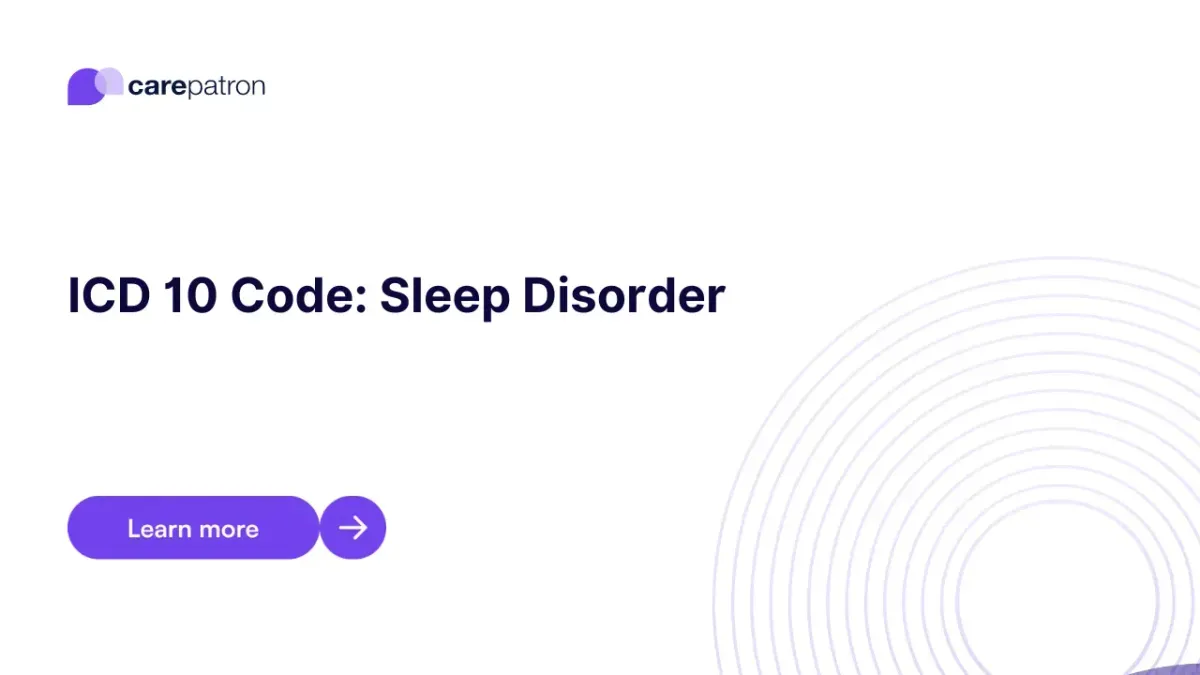
Sleep Disorder ICD-10-CM Codes
Learn the ICD-10 codes for sleep disorders, including key diagnostic codes for accurate classification and billing of sleep-related conditions.
Use Code
Commonly asked questions
ICD codes categorize sleep-related conditions for medical purposes, accurately representing patients' common sleep disorders or sleep problems.
Sleep disorder diagnoses are billable and coded for reimbursement and communication among medical professionals.
Treatments for sleep disorders vary depending on the specific diagnosis. Common approaches include lifestyle modifications (sleep hygiene), cognitive-behavioral therapy, medications, continuous positive airway pressure (CPAP) therapy for sleep apnea, and interventions to manage underlying medical conditions.
EHR and practice management software
Get started for free
*No credit card required
Free
$0/usd
Unlimited clients
Telehealth
1GB of storage
Client portal text
Automated billing and online payments
